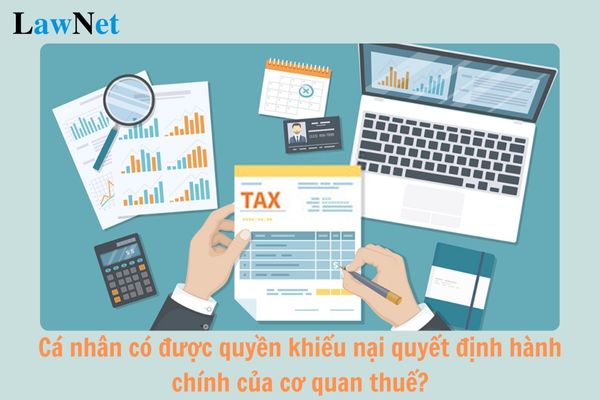Do individuals have the right to complain about the administrative decisions of tax authorities in Vietnam?
Do individuals have the right to complain about the administrative decisions of tax authorities in Vietnam?
The right to complain for individuals is stipulated in Article 147 of the Law on Tax Administration 2019 as follows:
Complaints and Denunciations
- Taxpayers, organizations, and individuals have the right to complain to the competent authority about administrative decisions and actions of tax authorities or tax management officials if there are grounds to believe that the decision or action is illegal, infringing on their rights and legitimate interests.
- Individuals have the right to denounce tax law violations by taxpayers, tax management officials, or other organizations and individuals.
- The competence, order, and procedures for resolving complaints and denunciations shall be carried out in accordance with the law on complaints and denunciations.
According to the above provisions, it is evident that individuals have the right to complain to the competent authority about administrative decisions and actions of tax authorities or tax management officials if there are grounds to believe that the decision or action is illegal, infringing on their rights and legitimate interests.
The competence, order, and procedures for resolving complaints and denunciations in this case shall be carried out in accordance with the law on complaints and denunciations.

Do individuals have the right to complain about the administrative decisions of tax authorities in Vietnam? (Image from Internet)
How is tax payment handled during the complaint resolution period in Vietnam?
According to Article 61 of the Law on Tax Administration 2019, tax payment during the complaint resolution period is handled as follows:
- During the period of complaint or litigation regarding the amount of tax, late payment interest, fines assessed or determined by the tax authority, the taxpayer must still pay the full amount of tax, late payment interest, and fines unless the competent state agency decides to temporarily suspend the enforcement of the tax assessment or determination decision.
- If the amount of tax, late payment interest, and fines paid exceeds the amount determined in the complaint resolution decision by the competent authority or the court's judgment or decision, the taxpayer is entitled to a refund of the excess amount paid.
The taxpayer has the right to request that the tax authority pay interest at the rate of 0.03% per day on the excess amount of tax, late payment interest, and fines paid. The interest money is paid from the central budget in accordance with the regulations on the state budget.
- The procedure for handling cases where the amount of tax, late payment interest, and fines paid exceeds the amount determined in the complaint resolution decision by the competent authority or the court's judgment or decision is performed as prescribed in Clause 5 of Article 60 of the Law on Tax Administration 2019.
In addition, the authority to handle excess tax, late payment interest, and fine payments is guided in Clause 2 of Article 10 of Circular 06/2021/TT-BTC:
- The Director-General of the General Department of Customs, Directors of Provincial and City Customs Departments, Directors of Post-Clearance Inspection Departments, Directors of Anti-Smuggling Investigation Departments in cases of issuing tax assessment and penalty decisions.
- Directors of Customs Branches, Directors of Post-Clearance Inspection Branches where the amount of tax, late payment interest, fines, and other budget collection items paid by the taxpayer exceed the payable amount.
- Heads of customs agencies where the amount of tax, late payment interest, and fines paid exceeds the amount determined in the complaint resolution decision by the competent authority, the court's judgment, or decision.
What are regulations on responsibilities and authority of tax authorities in resolving tax complaints in Vietnam?
The responsibilities and authority of tax authorities in resolving tax complaints are stipulated in Article 149 of the Law on Tax Administration 2019 as follows:
- tax authorities receiving complaints regarding tax law enforcement have the right to request the complainant to provide related files and documents; if the complainant refuses to provide the files and documents, they have the right to refuse to consider and resolve the complaint.
- tax authorities must refund incorrectly collected tax amounts, late payment interest, or fines to the taxpayer or a third party within 15 days from the date of receiving the handling decision from the competent authority.
- For complicated complaint cases, the head of the tax authority resolving the complaint may consult relevant agencies and organizations, including the first-time complaint. When carrying out consultation, the head of the tax authority must issue a decision to establish the Consulting Council. The Consulting Council operates on the principle of majority voting. The voting results serve as a reference for the head of the tax authority when making a complaint resolution decision. The head of the tax authority is the person issuing and responsible for the complaint resolution decision.

